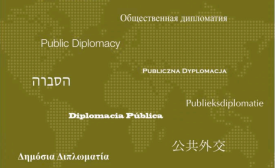climate change
American soft power — its ability to attract and persuade — is increasingly undermined by the government’s inability to take strong action on climate change, something that local opposition to clean energy development only makes worse.
ASEAN elites speak very highly of New Zealand's soft power, New Zealand's role is bigger and better when it's with Australia.

CPD is proud to announce the 2011-2013 CPD Research Fellows: Michele Acuto, Sarah Graham, and R.S. Zaharna.

With over half of humanity living in urban settlements, the role of cities in defining the parameters of everyday life is an undeniable influence. This project was designed to illustrate how global cities interact with global governance, particularly in the Climate Leadership Group or ‘C40.’
As part of our engagement with emerging African partners in addressing the challenge of climate change, the U.S. Department of State will sponsor Apps4Africa: Climate Challenge, a public diplomacy program comprised of three African regional competitions...
As international borders become more porous, nations must use soft power to build networks and institutions to respond to shared threats. In this sense, power becomes a positive-sum game. It is no longer sufficient to think exclusively of wielding power over others. We must instead think of using power to accomplish goals with others.

In the most recent paper from the CPD Perspectives series, Donna Marie Oglesby examines the role the public plays in global climate change politics, using the 2009 climate change negotiations in Copenhagen as a primary example.







